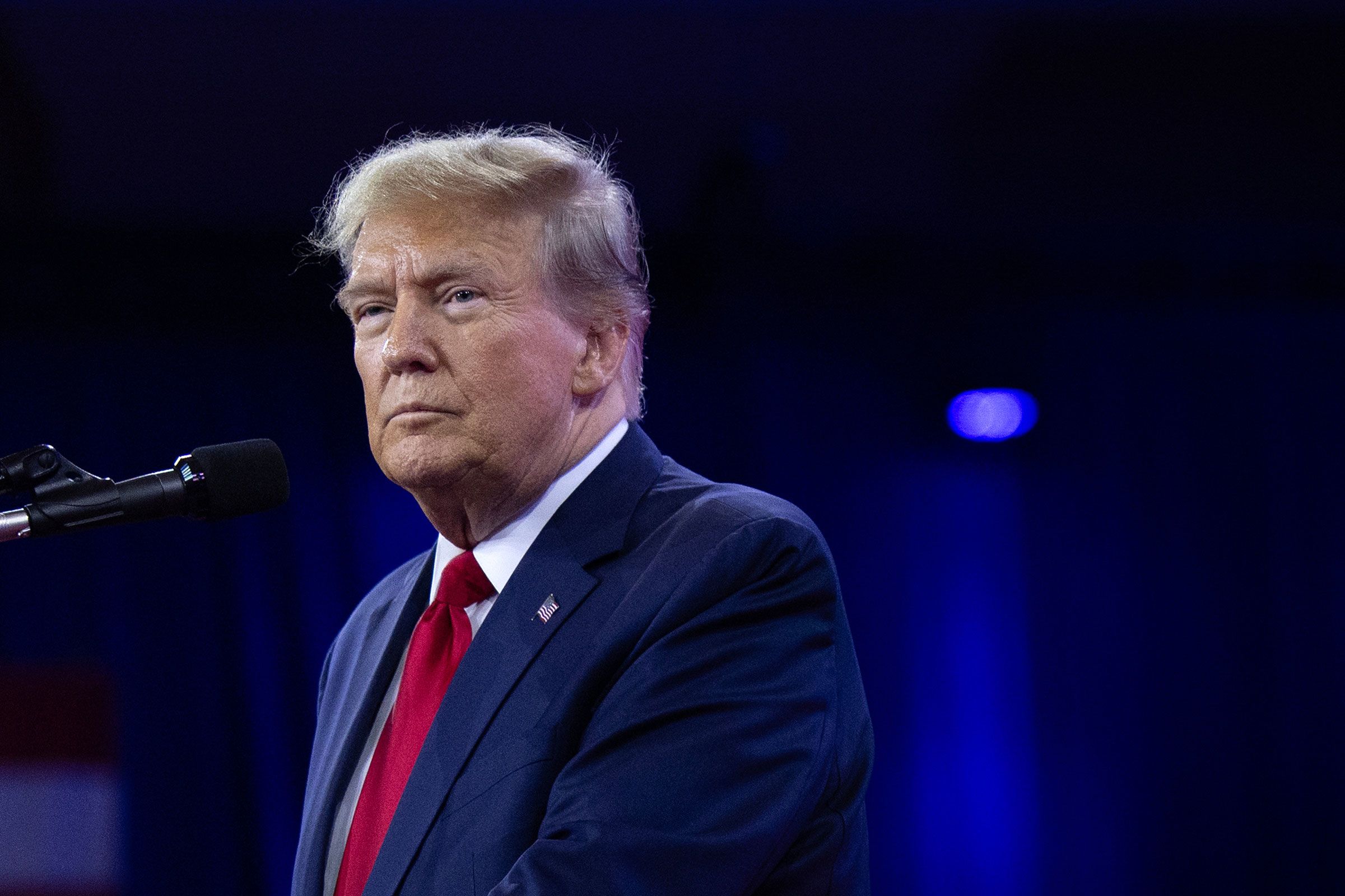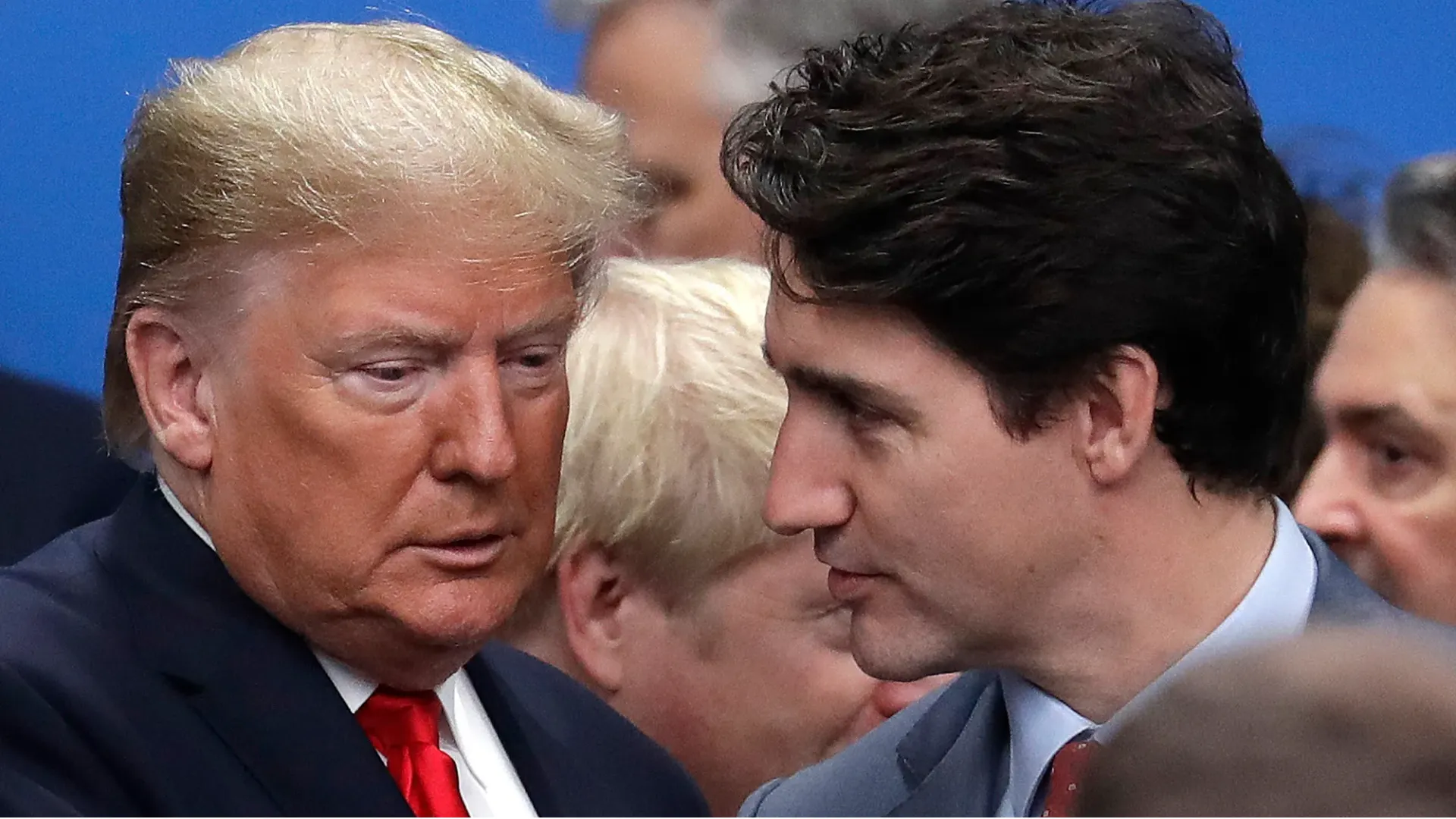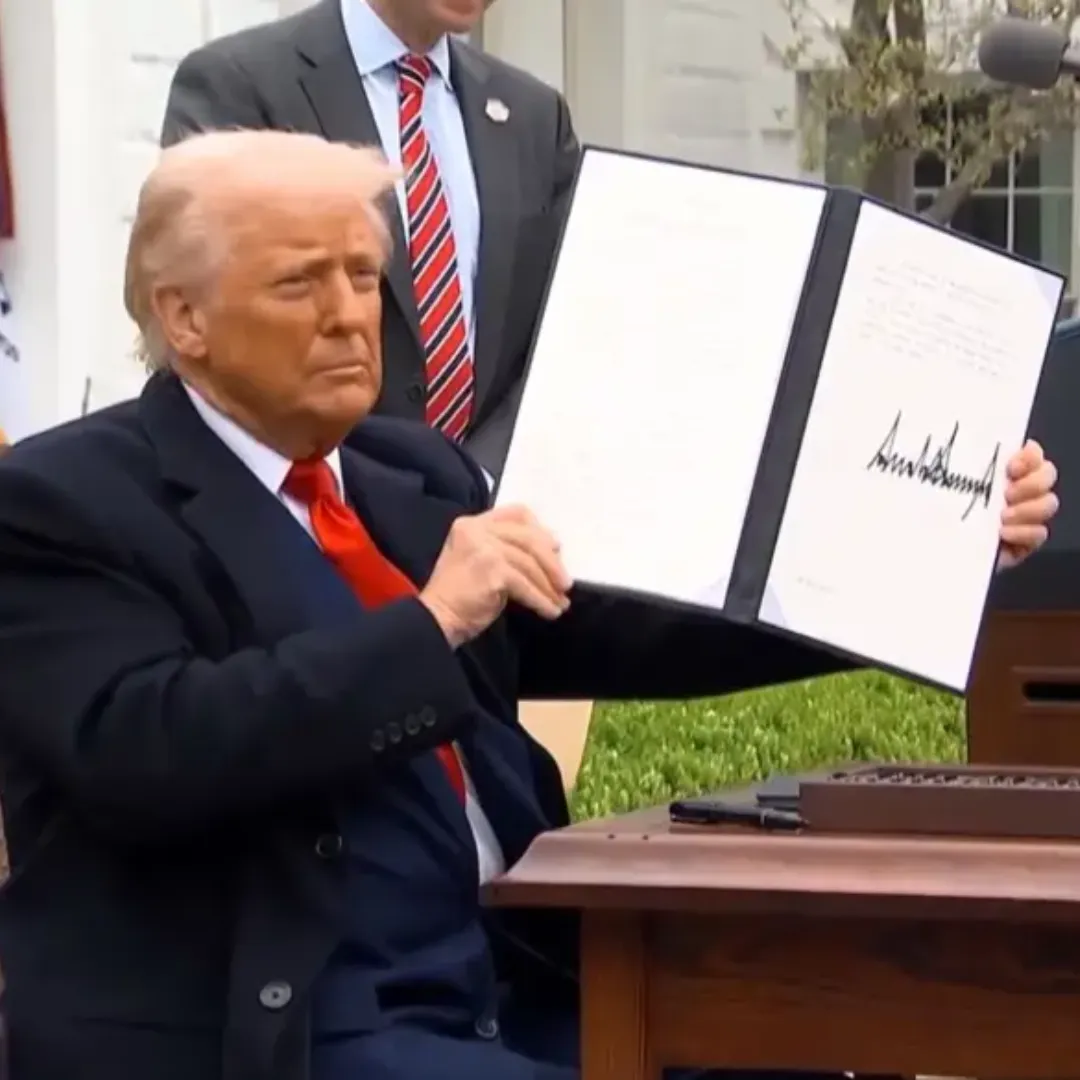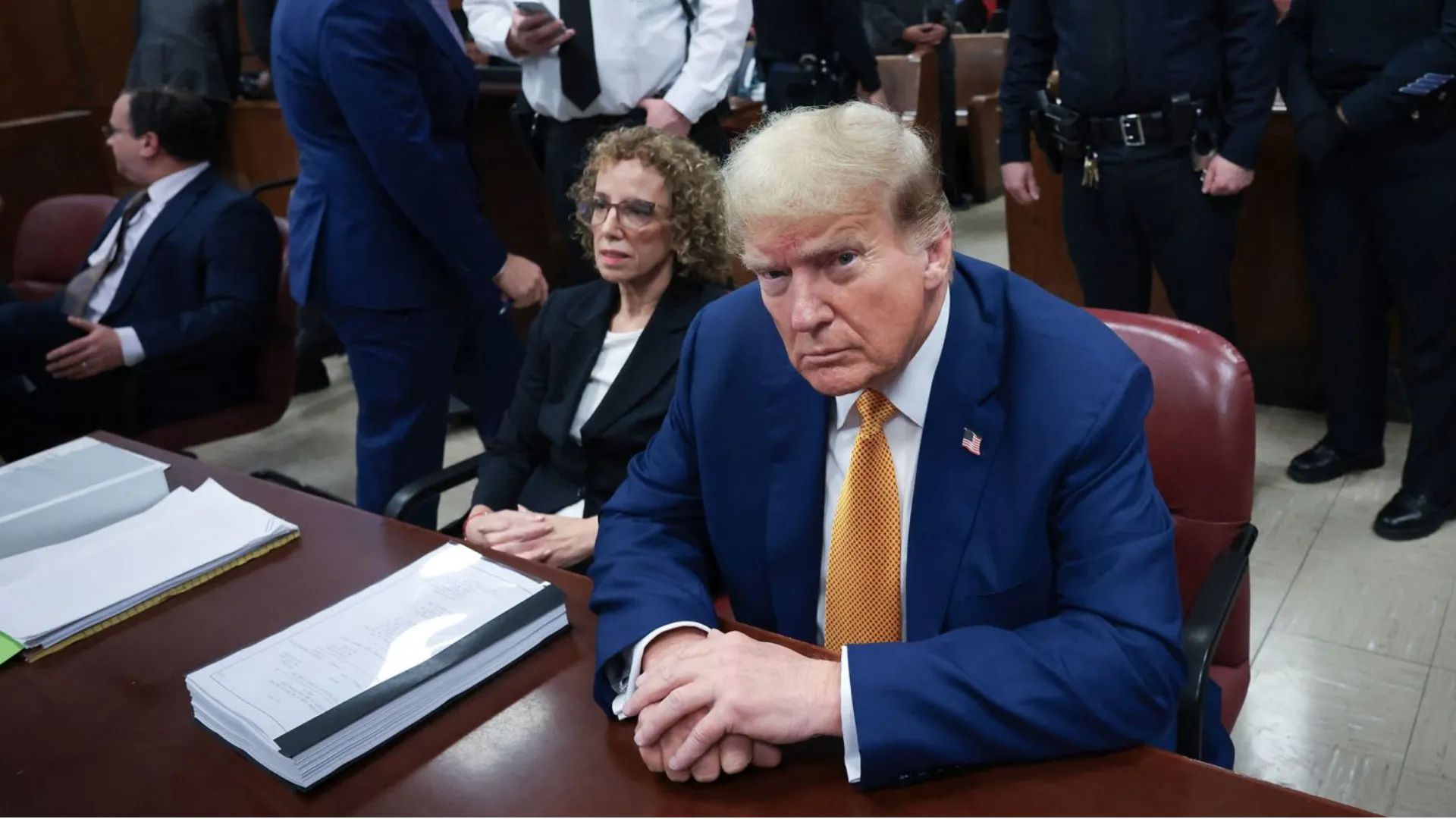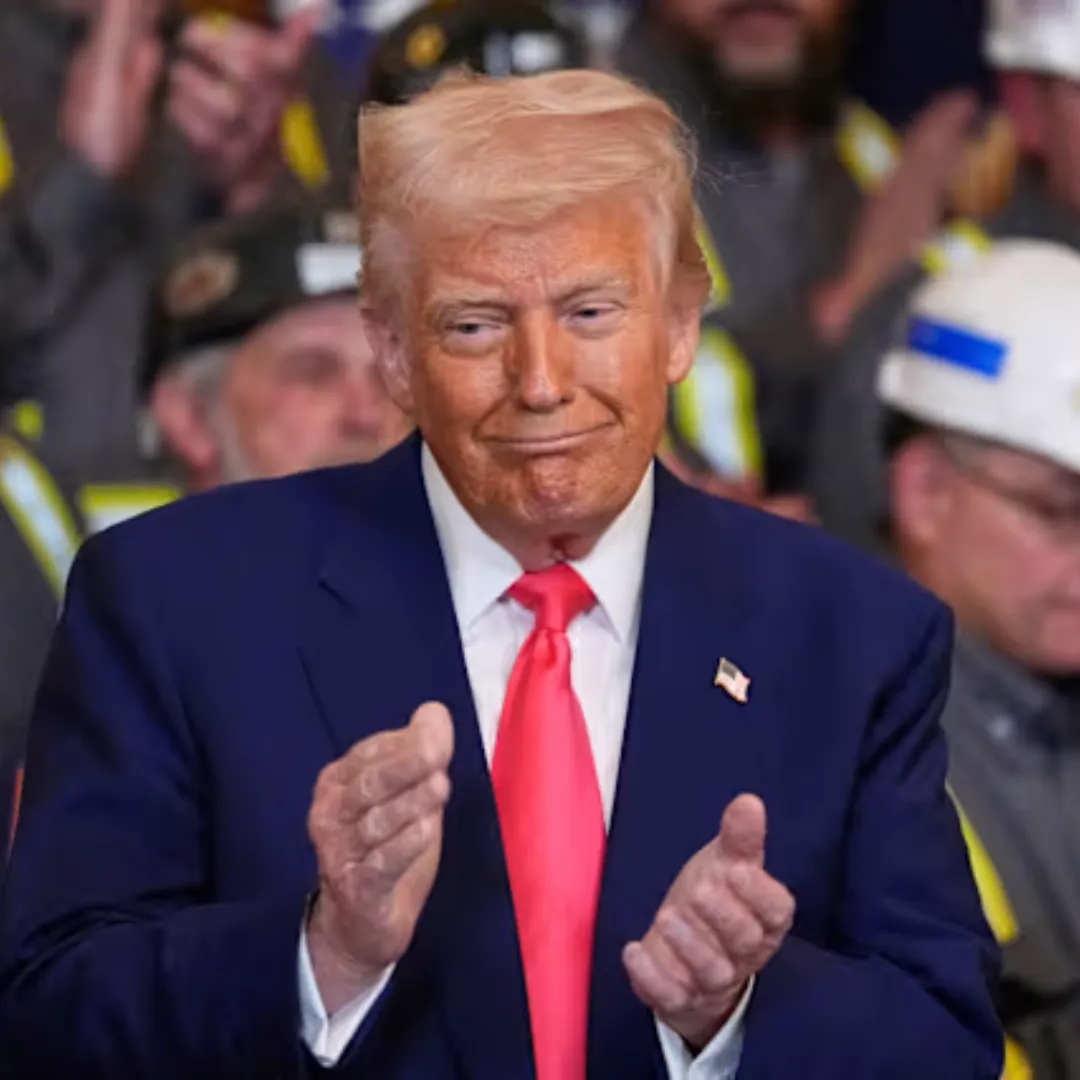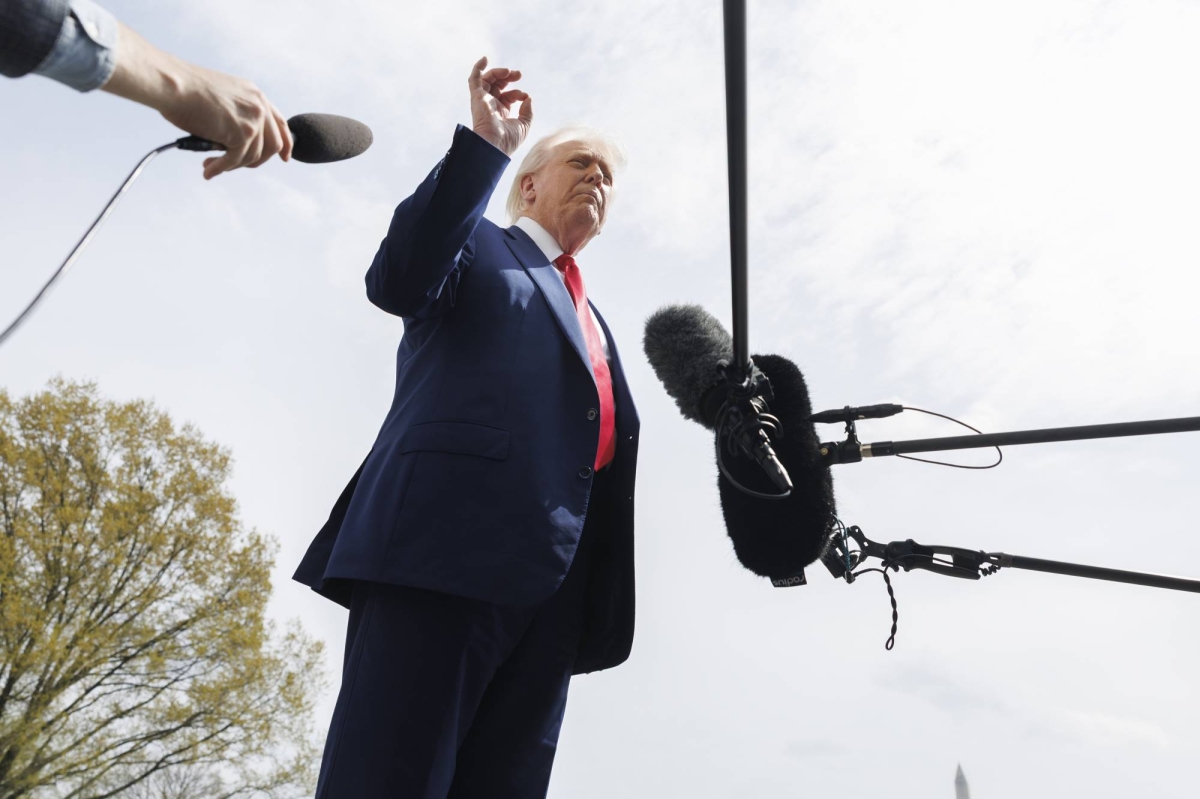
President Donald Trump blinked — but not because someone forced him to. He lifted, temporarily, the sweeping tariffs that had rattled global markets, shocked U.S. business leaders, and sent Wall Street into a freefall.
For now, a brief 90-day pause has given investors a moment to exhale. But the most sobering aspect of this political theater is not the tariffs themselves — it’s how little stood in the way of their abrupt implementation or reversal.
It was, by his own account, a matter of “instinct.” The tariffs were his idea. So was their suspension. His unilateral power to rattle financial markets, provoke diplomatic standoffs, and upend decades of trade policy was exercised not through a deliberative process, but by whim — and with virtually no institutional resistance.
In many ways, this moment reveals a deeper truth that has haunted the American experiment for nearly a decade: that the safeguards built into the U.S. Constitution are only as strong as the people entrusted to uphold them. And right now, those people — from Congress to the Cabinet — are largely failing.
Dictatorships don’t fail because of internal doubt. They fail because they consume themselves. They collapse under the weight of poor decisions, unchecked egos, and blind loyalty.
They confuse fear for consensus and mistake silence for strength. Ultimately, they produce outcomes so irrational, chaotic, or self-destructive that they erode even the support of their most devout followers.
In countries where power is consolidated into a single individual — where there is no real separation of powers, no independent judiciary, no free press — leaders are free to impose policies based on emotion or ego. They can reverse themselves at will, demand loyalty over competence, and punish dissent with exile, imprisonment, or worse.
America is not (yet) that kind of country. But the fact that we’re asking the question is a sign of how badly our institutional checks have eroded.
Trump’s tariff rollback didn’t come after debate in Congress. It wasn’t the result of a court ruling. It wasn’t coordinated through an interagency economic review or a formal diplomatic negotiation.
It came because — reportedly — he became concerned about the stock market, his own financial standing, and mounting pressure from donors and business allies.
It came because he felt like it.
And that is what should worry every American. Not the temporary policy shift, but the reality that the policy was entirely his to make or break.
Presidential power, especially in foreign affairs and economic policy, has long been expanding. But what we’ve seen under Trump is not just expansion — it’s institutional evaporation. The legislative branch, designed to check the executive, has become a bystander.
The Cabinet, originally conceived as a forum of advisers and independent thinkers, now functions more like a fan club. Even the judiciary — typically slow but eventually resolute — has remained mostly cautious, unwilling to test the limits of presidential authority in politically explosive arenas.
The Founders of the American republic designed a government of separated powers for a reason. They were deeply suspicious of concentrated authority, having lived under monarchy and observed how power unchecked always bends toward tyranny.
The idea was not efficiency — it was resistance to authoritarianism.
In a properly functioning government, Congress legislates, the president enforces, and the courts interpret. Each branch is equipped with tools to check the others: Congress can defund programs or override vetoes; courts can declare executive actions unlawful; and presidents can veto legislative overreach.
But all of those tools rely not just on the written Constitution — they rely on people willing to use them.
When the president is unconstrained by his party, when Congress refuses to legislate meaningfully, and when courts defer to executive authority out of fear or political calculation, the entire structure starts to sag under its own neglected weight.
The Republican Party, by and large, has chosen complicity over courage. Its leaders have excused Trump’s power grabs as exaggerations or dismissed them as jokes.
When asked about Trump’s open suggestion that he might run for a third term — explicitly forbidden by the Constitution — Speaker Mike Johnson laughed and called it “just a joke.” Senator John Thune said Trump was “just having fun.” But Trump, notably, told NBC’s Kristen Welker: “I’m not joking.”
This dynamic — dismissing dangerous rhetoric as harmless showmanship — is exactly how norms are eroded. What begins as a rhetorical overreach becomes a political litmus test.
Loyalty to the Constitution is replaced with loyalty to a single individual. And before long, entire institutions are warped around a leader’s ego.
We saw this pattern unfold after the 2020 election, when Trump refused to concede. Many Republicans assumed he would come around. Few believed he would attempt to overturn the results.
Fewer still predicted a violent assault on the U.S. Capitol. But it happened — not because Trump changed, but because he never changed, and the system refused to restrain him.
Investors are not moral actors. They respond to risk, and over the past week, Trump’s unpredictable use of tariffs introduced massive uncertainty. When he paused them, markets rebounded. But no one is pretending this is a return to order — it's merely a delay in chaos.
And here lies another danger: When markets price in a president’s impulses, not his policies, the economy itself becomes hostage to unpredictability. Corporations stop making long-term investments.
Global partners withdraw from deals. Trade relationships sour. And working Americans — not the elites — bear the brunt.
Governing by “instinct” may sound bold, but in practice, it means bypassing analysis, ignoring expertise, and acting alone. It’s not new — kings have governed by whim for centuries — but it’s particularly dangerous in a modern, interconnected democracy.
Modern governance requires deliberation. It demands input from experts in economics, diplomacy, law, and military strategy. It requires consultation with stakeholders, allies, and — most importantly — the people.
Trump has shown little interest in that kind of leadership. His decision-making is impulsive, opaque, and personalized. Policies are announced by tweet, sometimes contradicting his own Cabinet. Loyalty is prized above competence. And complexity is flattened into slogans: “Tariffs are good,” “We’re winning,” “This is a great time to buy!”
This is not strength. This is the illusion of control masking the absence of strategy.
That depends on whether the people who do have power — Congress, the courts, voters — are willing to use it.
Congress could:
-
Reassert its control over trade policy, which it has the constitutional authority to regulate.
-
Pass veto-proof legislation limiting unilateral tariff authority.
-
Conduct serious oversight of executive decision-making — not just performative hearings.
The courts could:
-
Fast-track challenges to executive overreach.
-
Clarify the limits of emergency powers.
-
Reinforce the separation of powers doctrine in their rulings.
Voters could:
-
Demand better.
-
Punish politicians who elevate personality over principle.
-
Elect leaders who treat public service as a trust, not a platform.
Dictatorships fail not because their leaders are bad at politics, but because they create systems that cannot self-correct. They silence dissent, eliminate accountability, and build institutions so dependent on a single person that no one else knows how to function when things go wrong.
But democracies can fail too — especially when they stop acting like democracies.
If Congress won’t check the president, if courts won’t enforce constitutional limits, and if voters are persuaded that loyalty matters more than law, then the architecture of democracy becomes a hollow shell.
We must remember: the Constitution is not self-executing. It depends on people — sometimes brave people — to make it work. People who say “no,” who defend process, who put principle above politics.
Right now, those people are few. And that is why the fear of failure — not just of one man, but of a whole system — feels very real.
